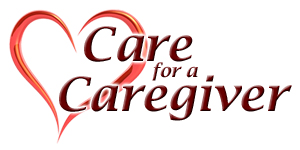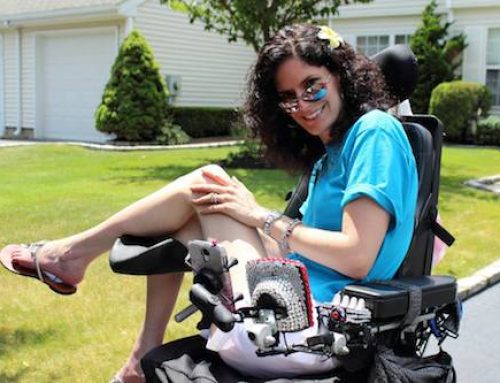This week I am breathing a deep sigh of relief and exhaustion. My daughter Johanna was released from the PICU this past week. In a two-week period she was in the operating room three times. The final brain surgery seem to correct the problem in her brain so now it was time to focus on transitioning her from hospital to home.
As you can imagine, that is scary for anyone, but especially when you are a 17-year-old with disabilities. I worked diligently reminding Johanna of the life she had waiting for her at home. There’s dogs and cats, teachers and therapists, dates with friends, and a little job at Love Lane Kitchen. Only Love Lane Kitchen raised her eyebrow as Johanna wondered how the owner could have possibly gotten all those dinner napkins folded without her for the past two weeks. I built on that interest as I helped her out of hospital gowns and into regular pajamas. Then I asked to discontinue IV pain medications and replace them with oral medications. Day one of transition was done. Although Johanna cried herself to sleep as I lay next to her in my sleeper chair, I knew we had to move ahead with plans for heading home the next day.
I woke the next morning with the neurosurgery resident whispering my name from behind the curtain that was the door to Johanna’s room. I opened my eyes to see him smiling and hear him apologize for waking me. He heard Johanna had a rough time going to sleep and he told me that we could just wait and see if she was really ready to go home. I sleepily told him I had to get her home to get her well (and to avoid having doctors and nurses wake me up in the morning). Wide awake, I headed to the parent shower and got myself ready to greet the next wave of doctors and nurses fully dressed and smiling. When our neurosurgeon arrived he was concerned. Johanna woke the same way she went to sleep; crying in pain and barely speaking. He too asked what I thought about her recovery. I told him that I knew I needed to get her home to get her well. No amount of medication, physical therapy or neurological exams was going to take her to the next step of recovery. I knew it was time to bring Jo home. He nodded and said he would support me in whatever we needed to do.
Next, I called for backup. I called my husband as Johanna screamed in the background. I told him to bring Jo’s service dog, Taffy and sister Anna and anyone else he could to help me get Johanna distracted to go home. All morning, I focused Johanna’s eyes on home. I slowly got her dressed in regular clothes as I reminded her that she needed to go to work, see her friends and teachers. I did everything I could to distract her from the pain in her head and get her to imagine life outside of this hospital room. Finally, after some of the medications and the distractions kicked in, she started making plans for home. When Taffy and family walked through that door, we were ready to go home.
Facebook informed me that I hadn’t been to Riverhead in three weeks. Our other two dogs whimpered with excitement and even the cats circled around us as if to ask why we had been gone for such a long time. Best of all, Johanna and I were greeted with a table filled with spring flowers. In the midst of the Christmas snows, we had planted some spring bulbs and placed them on a table by a window. In my absence, I was concerned that no one would water them. Despite minor neglect, this beautiful garden was in full bloom in time for Johanna’s homecoming. It was a promise that new life was just around the corner.
The next few days were filled with sorting mail, facing bills, phone calls to the insurance company and a host of other tasks. Waking up to happy dogs staring me in the face was a welcome change from doctors and nurses asking questions while I was half asleep. I jumped out bed to feed them and then raced to 7 a.m. Mass. I laughed when the priest asked me if I had been traveling the past three weeks. Later I thought, that in truth I had been staying at an upscale Manhattan room with a view and 24 hour room service; that’s one way to look at it. It’s been a long week of transition, but still there is no place like home.
I share this week with you not for your sympathy or your admiration but rather as another example of two more strategies for learning how to thrive- and breathe – in the midst of trials. These strategies: exercise and advocate, are the most practical foundations of the didactic acronym:
Believe – Restore – Exercise – Advocate – Take Time – Heal – Engage
Exercise and advocate go hand in hand when one is dealing with stress and feeling like you are trying breathe underwater. I didn’t get much physical exercise this week (I like taking brisk walks, but not in subzero temps). But planning and focusing on positive goals was a strenuous exercise of my mind and my will and it is an essential component for dealing with stress. From a faith perspective, maintaining a regular time for prayer, even at my daughter’s bedside, helps me to breathe more deeply to handle the stress of constant trials. I bring my bible and prayer journal with me and mentally and spiritually exercise my faith to slip off to a place of surrender even while the beeps of monitors echo in my ears and the sterile smells of the hospital room fill my nostrils. Readings like Psalm 124:2,4-5 keep me focused:
“If the Lord was not with us, the flood would have engulfed us, the torrent would have swept over us and the raging waters would have swept us away.”
Like exercise, advocacy is an important part of maintaining a faith filled and fresh perspective. In the early years of my daughter’s struggles, advocacy seemed easy. It meant speaking up when I felt her needs were not being met in the hospital setting. Sometimes advocacy includes disagreeing with a doctor and continuing to express my opinion until we could agree on a treatment plan. Advocacy also included educating myself and others about Johanna’s disabilities and making sure that she was accommodated at school, home and in the community.
This year advocacy has taken a wider role for myself, my family and for many others around the country who have experienced adverse situations due to changes in the Affordable Care Act. While I never imagined myself being an activist, I was always certain of my God-given ability to speak the truth in love, especially on behalf of the most vulnerable.
When the voice of God spoke to me in a dream and told me I would learn to breathe through the stresses of life which threatened to drown me, I never imagined that would include national television and radio interviews. But that’s where God has led me to exercise my rights and advocate for my family and others who feel they have no voice. A week ago, I challenged Senate Majority Leader, Harry Reid on national news. Senator Harry Reid, in a prepared speech from the Senate floor, called me and millions of Americans who lost insurance and doctors, liars. I was personally offended and angered. By a move of grace, I was given the opportunity to share my opinion on national television.
Honestly, I wasn’t nervous or afraid. I was empowered with the grace of God’s spirit and compelled to exercise free speech to advocate for myself and other Americans who were offended by these derogatory statements made by the Senate Majority Leader in his official position from the floor of the U.S. Senate.
When I lay down to sleep at night, sometimes I am overwhelmed with the realization of what I have done to exercise and advocate for my daughter and others. Then I take a deep breath.






Leave A Comment